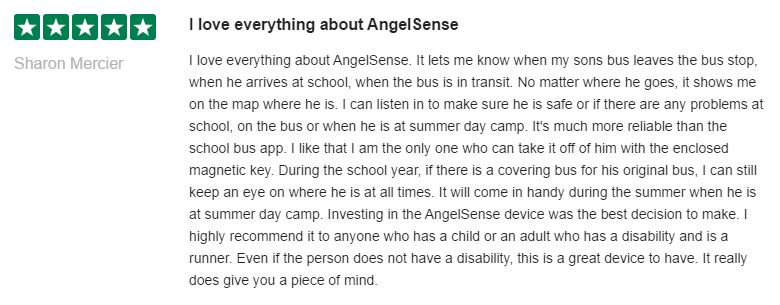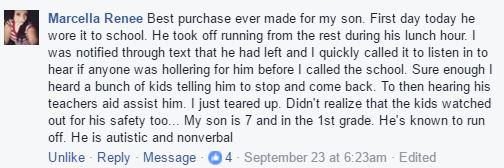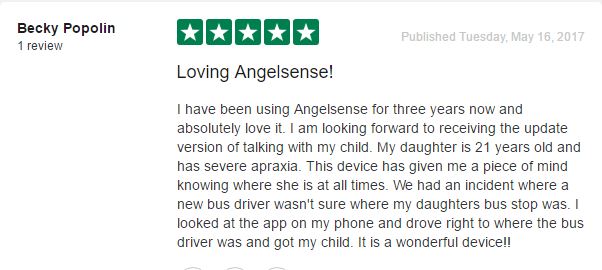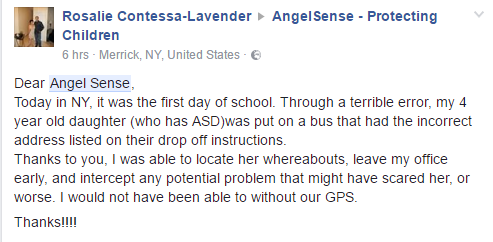Autism on the School Bus: Making it a Good Ride for Everyone
Updated on March 11, 2024I dread Mondays. Most of us do. But for me, it’s not because the weekend is too short or I want another hour or two to myself before I have to face the morning commute and hustle. For me, Mondays always start in the same way: with a coffee in the one hand and my 6-year old’s hand in the other as we wait for the bus. And as seemingly ordinary as this moment may sound, few parts of my day make me feel as anxious or frustrated as this one.
What you don’t know is that my 6-year-old is special. She has autism which makes riding the school bus challenging and anything but ordinary. My little girl struggles with social interaction and often finds the noise and crowded school bus overwhelming. I remember how the bus driver would complain when she first started riding the bus that for the first 20 minutes of every bus ride she would scream non-stop. The bus driver couldn’t understand it and neither could some of the students. We’ve come a long way since then. And while my daughter still struggles with aspects of the bus ride, she now has a bag with earplugs and comfort toys to soothe her. So why am I still anxious?

Here’s the thing: my earplug and squishy-toy filled bag of tricks only goes so far. There’s a lot I can’t control about my daughter’s ride to school. I can’t prevent the bus from being late, which it often is. I have no control over route changes, staff transfers or under-trained bus drivers. I also can’t do anything about what happens on the bus. And if I try to raise any of these issues with the school or city they’ll emphasize that my child always gets to school safely. But that misses the point.
It’s not enough that a child with special needs gets to school in one piece. Because it’s the small things that happen on route that can have the biggest impact on a special child. I remember a time when my little girl had severe meltdowns every time she got to dropped off at school. No one could understand why. And then I heard from one of the other parents that the bus has been rerouted making what is meant to be a 30 minute ride an hour long. My child simply couldn’t take it.
What I’ve learned over the years is that while some things are out of my hands, there’s a lot I can prevent by simply being aware. This means paying close attention to my child’s behavior and moods as well as doing my best to get a sense of what’s happening on the bus. But before I go into more detail, I think it’s important to understand why special children struggle with bus rides. In my experience, it’s only by understanding this that we can make bus rides safe and enjoyable for our special children.
Why do children with autism struggle with bus rides?
A bus ride poses a unique set of challenges for anyone with special needs. After all it’s a unique situation which requires them to deal with other people, information and transitions. And as any parent knows, that’s a lot for a child with special needs to manage at one time.
Riding the bus also tends to be an overwhelming experience for anyone with sensory sensitivity. On a typical bus ride you’re often exposed to many new sights, sounds and even smells. And for some children with special needs this tends to cause distress and may even trigger a meltdown.
For children who struggle with transitioning, buses can be particularly challenging. It may take your child some time to settle down which may make them unwilling to get off the bus when it’s time to do so. This could result in your child missing their stop or may even result in a meltdown.
Ensuring your child is safe
Parents who understand how challenging it can be for their special child to ride the bus want to do something about it. While you may not be able to alleviate all the stress and anxiety your child experiences, there are simple and practical things you can do to keep your child safe on the bus.

In my experience, here are a few things that will help keep your child safe while giving you the peace of mind you deserve.
- Consider getting an aide: This can be on a temporary or permanent basis. An aide can be useful for keeping a stressed child calm and can also help with transitions.
- Find your child’s ‘cheerleaders’: This isn’t easy, but if you can find children who support and understand your child’s unique needs, they may be willing to protect your child from bullies.
- Monitor the bus: I recently started using AngelSense which makes it easy for me to see the speed the bus is going. I also get notifications for unexpected stops.
How to make bus rides more comfortable for your special child
In addition to safety, it’s important to focus on the small things you can do to make the bus ride fun and enjoyable. This can make a huge difference and may even help alleviate tantrums and meltdowns.
Here are a few things I’ve done to make it easier for my special needs child to ride the bus.
1. Keep your child calm
If you can find a way to keep your child calm on the bus they’ll have a more enjoyable bus ride. This will also boost your child’s confidence, and will make it that much easier for them to deal with any unexpected changes.
- How to do this:
- Establish a routine: Routine and predictability are important for children with special needs. If you can make a bus ride part of your child’s daily routine, they’ll come to expect it.
- Familiarize your child with the route and driver: Do your best to avoid unnecessary changes and surprises. You can start by making sure your child is familiar with the bus route. If your child has the same bus driver every day, you’ll also want to familiarize your child with the driver.
- Be supportive: You can use AngelSense’s AngelCall feature to check-in with your child in real-time and offer support and encouragement when needed. This lets you talk to your child without them needing to pick up or push anything. It comes in handy when your child is stressed and needs to be calmed down
2. Alleviate any fears your child has
If your child is verbal and able to express what bothers them about riding the bus, you might want to discuss it with them. Understanding what bothers your child is one of the best ways to make your child feel better.
- How to do this:
- Talk about it: Talk to your child about their bus riding experience. Encourage them to share what bothers them most. This is also a good opportunity for you to explain what your child is going to experience on the bus.
- Use social stories: Social stories are an effective way to prepare your child for the bus. This will give your child a sense of what to expect. You can also use social stories to re-enact scenarios which may scare your child.
- Reassure your child that you’ll be there: Your child is likely to feel calmer if they know you’ll be there waiting for them when they get off the bus. The AngelSense ETA feature is useful for this. This feature will give you live updates as well as an ETA for your child’s arrival so you can make sure you’re waiting for them at the bus stop when they arrive.
As one of our customers shared with us:
 3. Accommodate your child’s sensory needs
3. Accommodate your child’s sensory needs
Sensory overwhelm is very real for children with special needs. Be sure to consider any sensitives your child has and how riding the bus may affect your child. This way you can try look for effective solutions to minimize overwhelm.
- How to do this:
- Find soothers: Find objects which may soothe and relieve any sensory overwhelm your child may experience while on the bus. For example, if light bothers your child, you can encourage them to wear a hat. You could also purchase noise cancelling headphones to block out excessive noise.
- Understand what the environment is like: Use AngelSense’s Listen-in feature to get a sense of what’s happening around your child. This will give you a sense of whether there is too much noise, and will help you prepare your child accordingly.
This is what one of our customers had to say about our Listen-in feature:

4. Prepare your child for changes in schedule
Most special needs children find change overwhelming. While it’s impossible to avoid change completely, you can do your best to prepare and in this way you can avoid any anxiety-inducing schedule changes.
- How to do this:
- Collaborate with the school: Ask the school and bus driver to alert you of any planned schedule and route changes which you can prepare your child for.
- Track the bus: Using AngelSense’s notifications for unexpected stops you’ll be alerted about any route changes.
- Talk your child through any changes: As soon as you know about a change in schedule or route, be sure you update your child. This will make it easier for your child to cope. You can use AngelSense’s AngelCall feature to talk your child through any changes before they happen.
This is what another customer had to say:

5. Focus on teaching appropriate bus etiquette
Many special children struggle with social interaction and other situations governed by social norms. These children often don’t understand what appropriate behavior is and must be taught how to behave in different situations.
- How to do this:
- Teach your child what’s appropriate: It’s important to explain to your child how they should behave on a bus. You could use social stories to explain that you shouldn’t shout or walk around the bus. This is best done in collaboration with your child’s teachers. It’s also important to emphasize that sometimes others behave inappropriately, and that bullying and other abusive behavior is unacceptable.
- Listen in: Use AngelSense’s Listen-in feature to hear if there is any inappropriate behavior such as your child shouting. You can also use this feature for protecting your child from bullying as it lets you hear what’s happening in the environment around your child.
Autism on the School Bus: Additional Testimonials from Users





While riding the bus may never be an enjoyable experience for a child with special needs, by taking small steps you can ensure your child is safe and comfortable. This will also give you the peace of mind to know that your child’s journey to school is as stress-free as possible. What have you done to improve your child’s bus ride? Share your thoughts and suggestions in the comments below.

i have a similar experience. I used to go on a bus with disabled children in middle school, and the things was that I was not disabled in any way. I was perfectly normal. It was embarrassing to be seen by my fellow school mates coming out of and going into the bus. It was like hell in the bus, no peace of mid, children being very annoying(no offense) and worst of all, a filthy stench. My parents thought that it was a good way of transportation because it was door to door pick up and drop off and especially my mom was very inconsiderate, she told me i had to be on the bus for all of 6th, 7th , and 8th grade. I was on the bus for one hour and 20 minutes each day for five days a week, now you do the math
I’m a granddaughter and I have the hardest time getting my grandson to get on the bus. I don’t know why he loved the bus last year but I have to wrestle with him to get him up on the bus this year.
Hi Lorraine,
You might find these tips helpful with getting your grandson to get on the bus: https://www.angelsense.com/blog/gps-tracker-helps-back-school-transition/
On a personal note, things are super crazy and change is hard for them, but I can tell you that when my autistic 13 year old son refused to go on his bus it was because he was being bullied. His behavior was a flag for me and I used the 1-Way Voice on his AngelSense to listen to his ride and could hear the bully bothering him all the way to school. I hope this isn’t the case with your grandson, but usually a change in their behavior is directly related to something bothering them. I hope you can figure it out!
Try AngelSense Risk Free
FREE DEVICE
See PlansSession Changed
Your session has changed. Please close this tab.